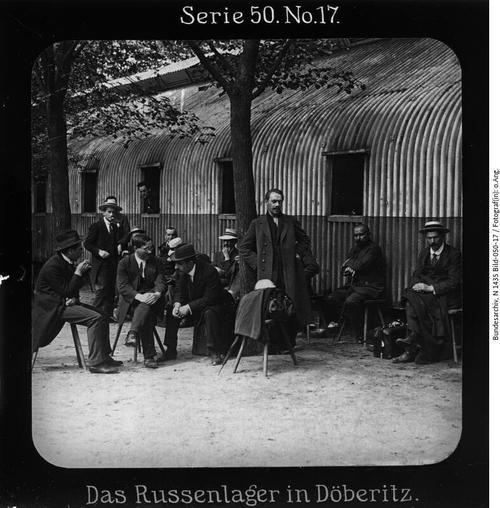Joint German-Russian Project “Security and Civil Society in Germany and Tsarist Russia during the First World War. The Internment of Civilian ‘Enemy Aliens’ in the Bilateral Relationship, 1914-1917”
Supported by the Deutsche Forschungsgemeinschaft and the Russian Foundation for Basic Research, the Russo-German collaborative project deals with the internment of subjects of the Tsarist Empire in Germany and of Germans in Russia from the beginning of the First World War until the abdication of Tsar Nicholas II (February 1917). Major analytical dimensions are the internment policies, the opposition to them and mutual perceptions. Moreover, the two governments and the subordinate authorities reacted to each other according to a principle of reciprocity that led to further restrictions or alleviations, whereby internment in general was frequently justified by references to ‘security’.. Yet these stringent measures endangered liberty as a crucial foundation of civil societies, which still existed as pockets in the First World War. In particular, liberals, social democrats as well as pacifist politicians, intellectuals and humanitarian organizations attempted to restrict security policies in the two countries. The project analyzes the complex and ambivalent relationship between security cultures and the norms of civil society by investigating the propaganda and policies of internment that were directed against German and Russian civilian ‘enemy aliens’ in the two states, respectively. In terms of methodology, the investigations rest on comparative and entangled history approaches.

